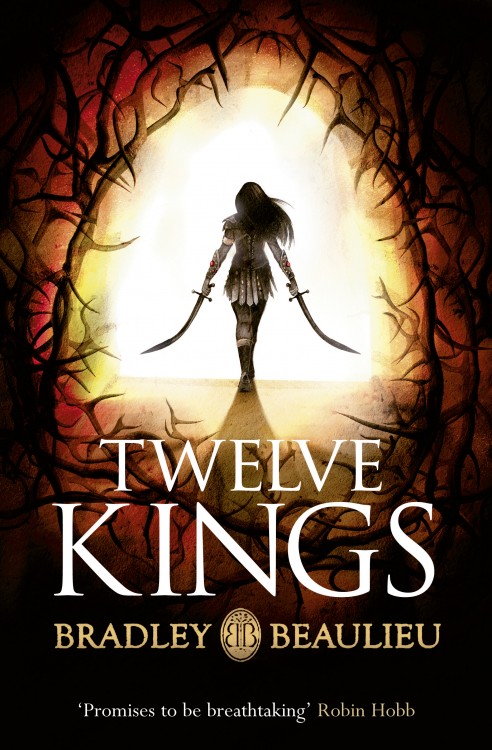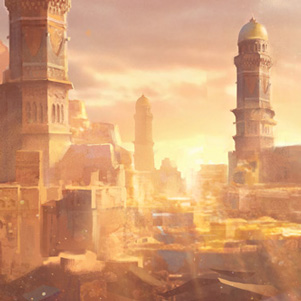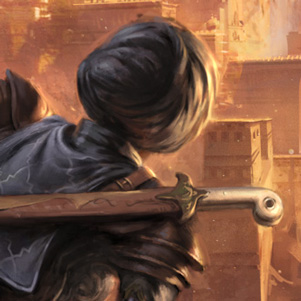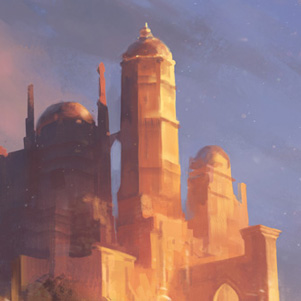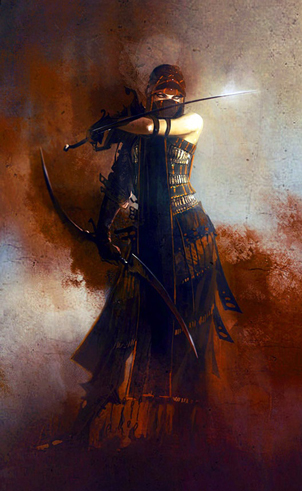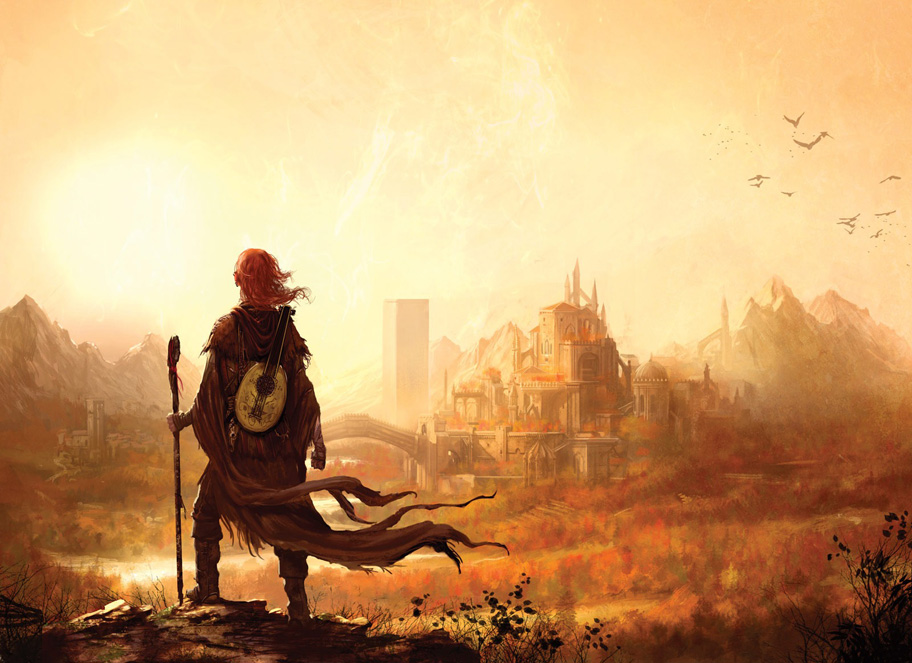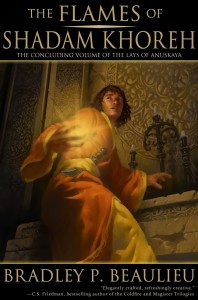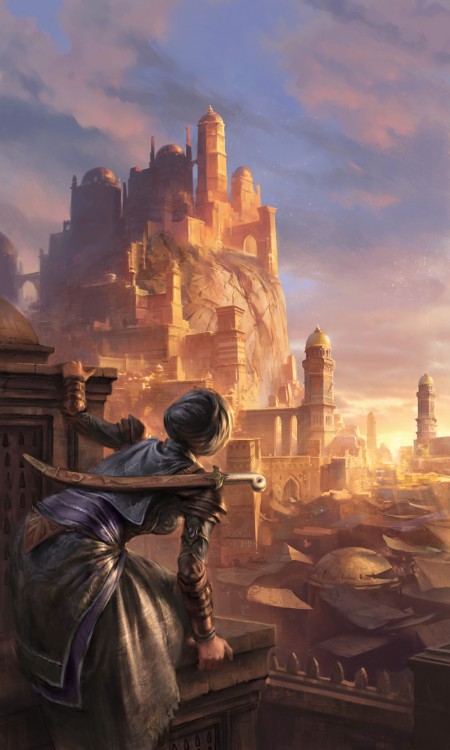
Bradley P. Beaulieu’s Twelve Kings in Sharakhai, the first volume of The Song of the Shattered Sands series, is one of my most anticipated novels for 2015. I had an opportunity to read an early draft of the book a few months ago, and Beaulieu impressed me with his rich, living world, characters you can root for as they struggle against forces they can’t comprehend, and a mystery that had me wondering the whole way through. So, when Beaulieu offered to debut the Adam Paquette’s artwork on A Dribble of Ink, I couldn’t say no.
“Adam Paquette, the wonderful artist of this piece, wowed me when he created the art for the cover of my debut novel, The Winds of Khalakovo,” Beaulieu told me. “I was ecstatic when my US editor, Betsy Wollheim at DAW Books, asked if I’d like to work with Adam on the new series. Of course I said I’d love to work with Adam again, and I’m so pleased with what he came up with for Twelve Kings in Sharakhai. The morning cityscape of Sharakhai is stunning, and I’m really pleased that the hero of the story, Çeda, is shown to be looking out across it toward the House of Kings, the mountain where the palaces of the Twelve Kings stand. I’ll leave it up to the viewer to wonder why Çeda is so very interested in them…
“I’d also like to thank Betsy for her excellent eye in what makes a cover work, and for including me a bit in the process.”
Paquette is one of my favourite artist, particularly for his work on Magic: The Gathering, and produces some of the best landscapes and cityscapes in the business. I also love that Çeda is front-and-centre on the cover, but doesn’t succumb to the traditional tropes that cover artists use to cue readers to her gender. She’s feminine, but not over-sexualized, and that sword looks like it can do some damage (though, Çeda’s no chump with just her fists!)
The cover for the UK edition of the novel, published by Gollancz, is still in progress.
I can’t wait to see the cover with the final typography and final flourishes. Twelve Kings in Sharakhai is worth getting excited about.
